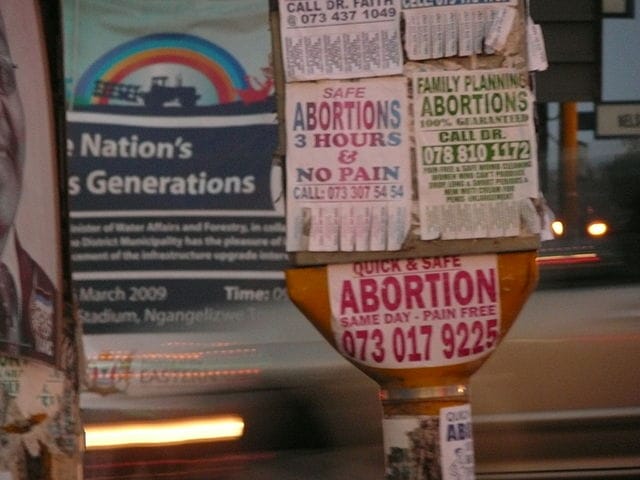Amendments that aimed to give women more choice have been put on hold because of the state’s failure to eradicate clinics and quacks who facilitate sex-selective or illegal abortions.
VRINDA SEHGAL
Amendments to the abortion law that would allow unmarried women to legally terminate their pregnancies in case of a contraception failure, have been put on hold. The decision comes on the back of an abortion racket run by a homoeopathy doctor in Maharashtra’s Sangli district.
The amendment also sought to allow women to abort unwanted pregnancies up to 24 weeks, as opposed to the 20-week limit currently stipulated in the Medical Termination of Pregnancy Act (MTP), 1971. It would also allow practitioners of alternative medicine such as AYUSH, homoeopathy to carry out abortions through non-surgical methods.
The need to extend the limit of abortions in the country has been highlighted in an array of cases over the last decade. Only last week, a minor moved the Bombay High Court seeking to abort her 26-week old foetus. Her father had claimed that not allowing his daughter to terminate her pregnancy infringed on her right to life. He later withdrew the plea.
This is one of many cases in which a woman’s discretion with regard to pregnancy has been disregarded. Given the somewhat rigid provisions of the decades-old Act, it is not uncommon for cases of pregnancy to get caught in a judicial maze, effectively rendering the choice of women ineffective.
In April 2015, the Punjab and Haryana High Court declined a rape victim’s plea for abortion. The court constituted two panels of doctors to examine whether a termination at 34 weeks constituted an emergency life-saving measure under Section 5 of the MTP Act. The medical team reported that the pregnancy did not pose an imminent danger to the girl’s life, and that at 34 weeks the abortion would be riskier than delivery.
Another case is currently pending before the Supreme Court. Niketa Mehta was 22-weeks pregnant when she discovered that her foetus had severe abnormalities and would not survive. Along with her doctor, she appealed to the Bombay High Court to grant her permission to terminate the pregnancy. The High Court, however, ruled that the MTP Act does not make exceptions. She later suffered a miscarriage.
In April this year, the Supreme Court declined a plea for abortion from an HIV-infected woman in Patna citing danger to her life.
It is quite tenable for courts to decline a woman’s plea for abortion in cases where the woman’s life is in danger. However, the MTP Act, as it stands today, gives primacy to the opinion of medical practitioners over that of the woman concerned. Even in cases wherein a woman is seeking to abort the child within 12 weeks, the authorisation of a medical practitioner is required.
This authorisation may be granted if the pregnancy is caused by rape or contraception failure; or if there is a substantial risk that if the child were born, it would suffer from such physical or mental abnormalities. The Act, therefore, does not make any provisions for women, who would like to abort the foetus for reasons other than these.
Moreover, the Act leaves unmarried women entirely out of its scope, thus compelling scores of unmarried women to opt for abortion illegally, often in unsafe conditions. The amendments to the Act had sought to broaden the scope of legal abortion to include unmarried women, thereby recognising the sexual and reproductive agency of women outside the institution of marriage.
It is a truism that in a society with a strong preference for male progeny such as ours, sex selective abortions are a reality.
“Nothing is in black and white”, says Lalitha Kumaramangalam, Chairperson of the National Commission for Women (NCW).
“I may feel strongly or you may feel strongly that the amendments must go through, but if there is a section of people that thinks that this amendment shouldn’t be there (since) it’ll give easier access to foeticide, then it is the job of the government to answer those queries or doubts or questions,” she says. The NCW had come out in support of the amendments last year.
To promote gender balance in society at the cost of the reproductive rights of women might be an ironic path to tread. While it is the responsibility of the state to eradicate clinics and quacks who facilitate sex-selective or otherwise illegal abortions, it should ideally do so without trampling over the choice of women.






